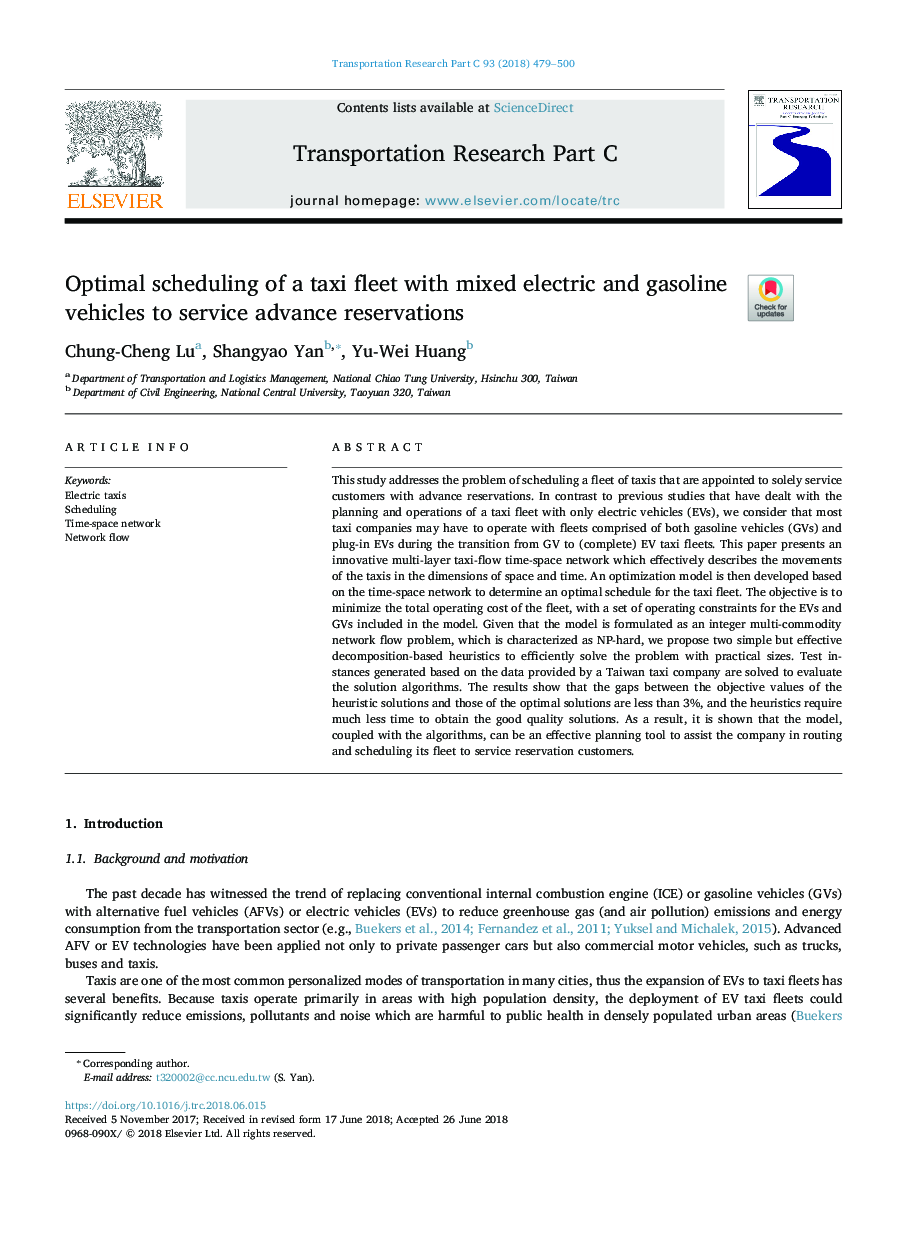| Article ID | Journal | Published Year | Pages | File Type |
|---|---|---|---|---|
| 6935790 | Transportation Research Part C: Emerging Technologies | 2018 | 22 Pages |
Abstract
This study addresses the problem of scheduling a fleet of taxis that are appointed to solely service customers with advance reservations. In contrast to previous studies that have dealt with the planning and operations of a taxi fleet with only electric vehicles (EVs), we consider that most taxi companies may have to operate with fleets comprised of both gasoline vehicles (GVs) and plug-in EVs during the transition from GV to (complete) EV taxi fleets. This paper presents an innovative multi-layer taxi-flow time-space network which effectively describes the movements of the taxis in the dimensions of space and time. An optimization model is then developed based on the time-space network to determine an optimal schedule for the taxi fleet. The objective is to minimize the total operating cost of the fleet, with a set of operating constraints for the EVs and GVs included in the model. Given that the model is formulated as an integer multi-commodity network flow problem, which is characterized as NP-hard, we propose two simple but effective decomposition-based heuristics to efficiently solve the problem with practical sizes. Test instances generated based on the data provided by a Taiwan taxi company are solved to evaluate the solution algorithms. The results show that the gaps between the objective values of the heuristic solutions and those of the optimal solutions are less than 3%, and the heuristics require much less time to obtain the good quality solutions. As a result, it is shown that the model, coupled with the algorithms, can be an effective planning tool to assist the company in routing and scheduling its fleet to service reservation customers.
Related Topics
Physical Sciences and Engineering
Computer Science
Computer Science Applications
Authors
Chung-Cheng Lu, Shangyao Yan, Yu-Wei Huang,
